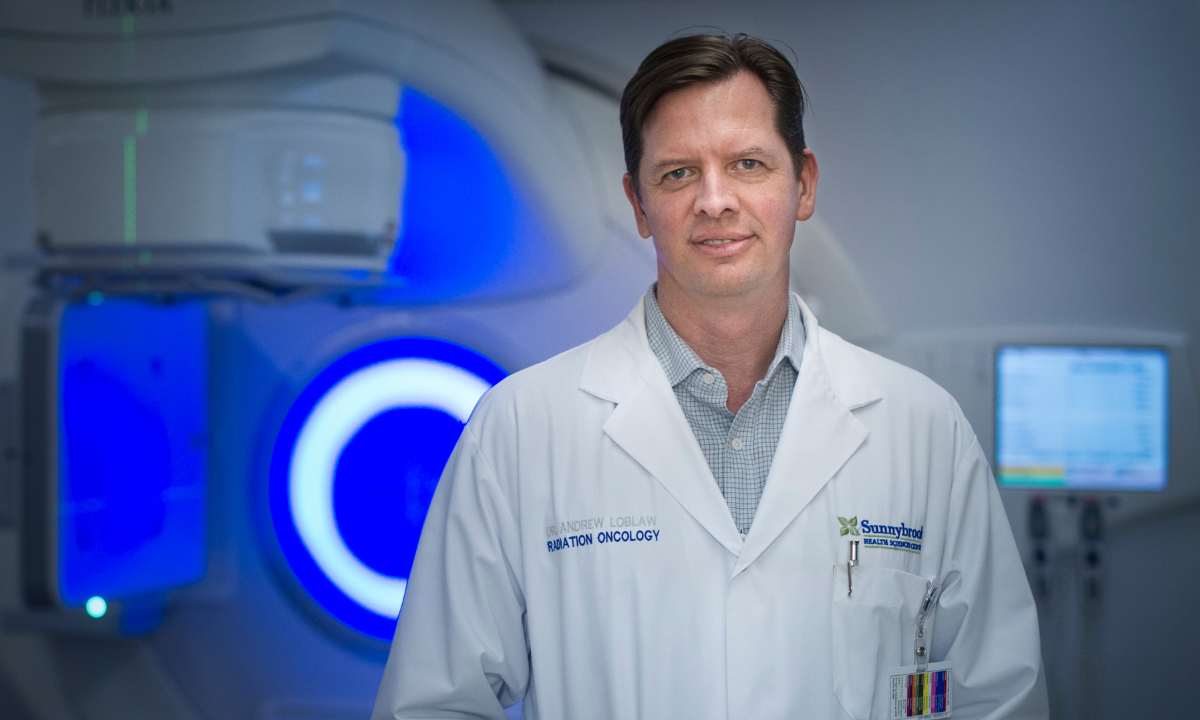Sunnybrook-led trial aims to treat prostate cancer with improved precision
A new Canadian trial designed and led by Sunnybrook Health Sciences Centre will determine whether Stereotactic Ablative Body Radiotherapy (SABR) can replace the standard brachytherapy boost for men with unfavourable risk prostate cancer.
The trial, called ASCENDE-SBRT, aims to see around 710 participants randomized to receive five sessions of SABR or 23 whole pelvis radiation sessions and a brachytherapy boost.
SABR involves higher dose per day treatments, delivered with pinpoint precision to target tumours. Brachytherapy is a form of targeted radiation that sees a tiny radioactive seed temporarily placed inside the prostate. Five treatments of SABR is now the standard of care for favourable risk prostate patients who are not eligible for active surveillance.
This new trial will consider the benefits to the patients and the healthcare system of using this course of treatment for patients with higher risk prostate cancer. Dr. Andrew Loblaw, radiation oncologist and scientist at Sunnybrook, will lead the work along with Drs. Wendy Parulekar and Keyue Ding of the Canadian Cancer Trials Group (CCTG).
“This could mean fewer visits to the hospital, less travel, less parking, less disruption to employment and other aspects of life,” Dr. Loblaw said. “We suspect it could save the healthcare system more than $30 million a year, while increasing treatment capacity and reducing wait times.”
Previous Sunnybrook research for favourable risk patients has also found that men who undergo five SABR treatments have better sexual and bladder function following treatment compared to brachytherapy, he added. The trial will determine whether this is also true for unfavourable risk patients.
This trial has received a $4.5 million grant from CIHR, and will be run by the CCTG at centres across Canada.






